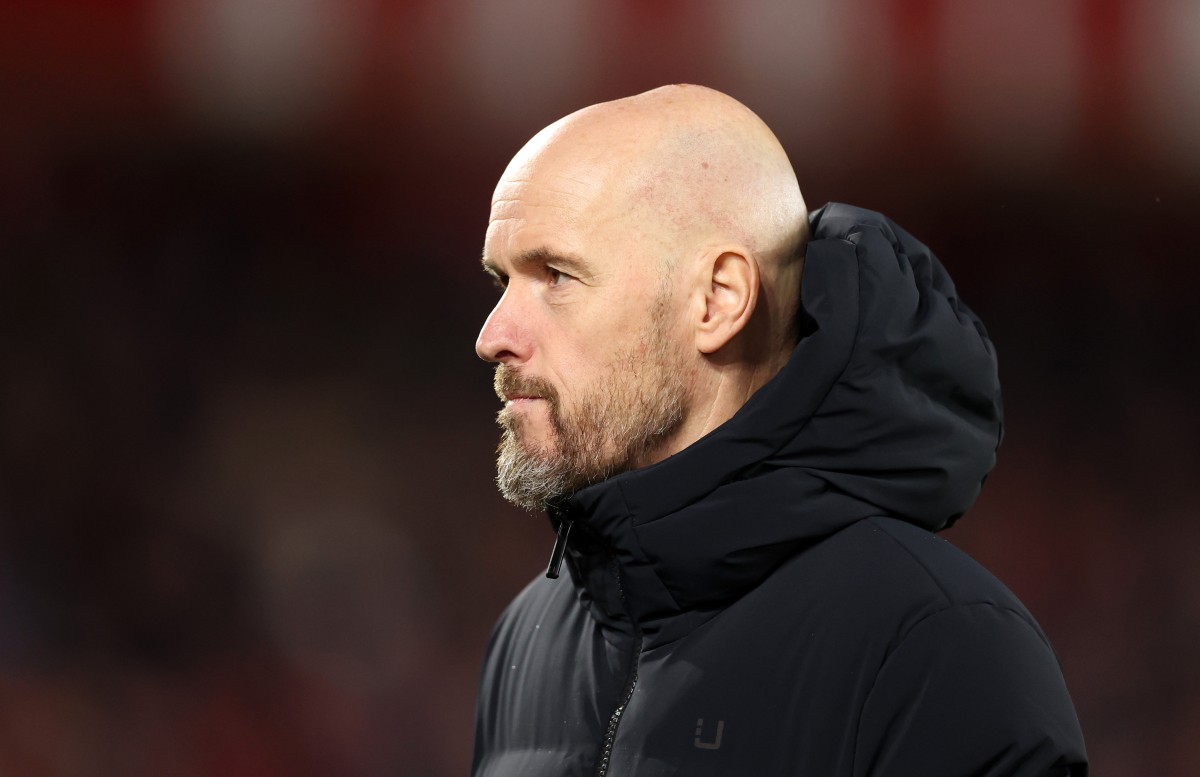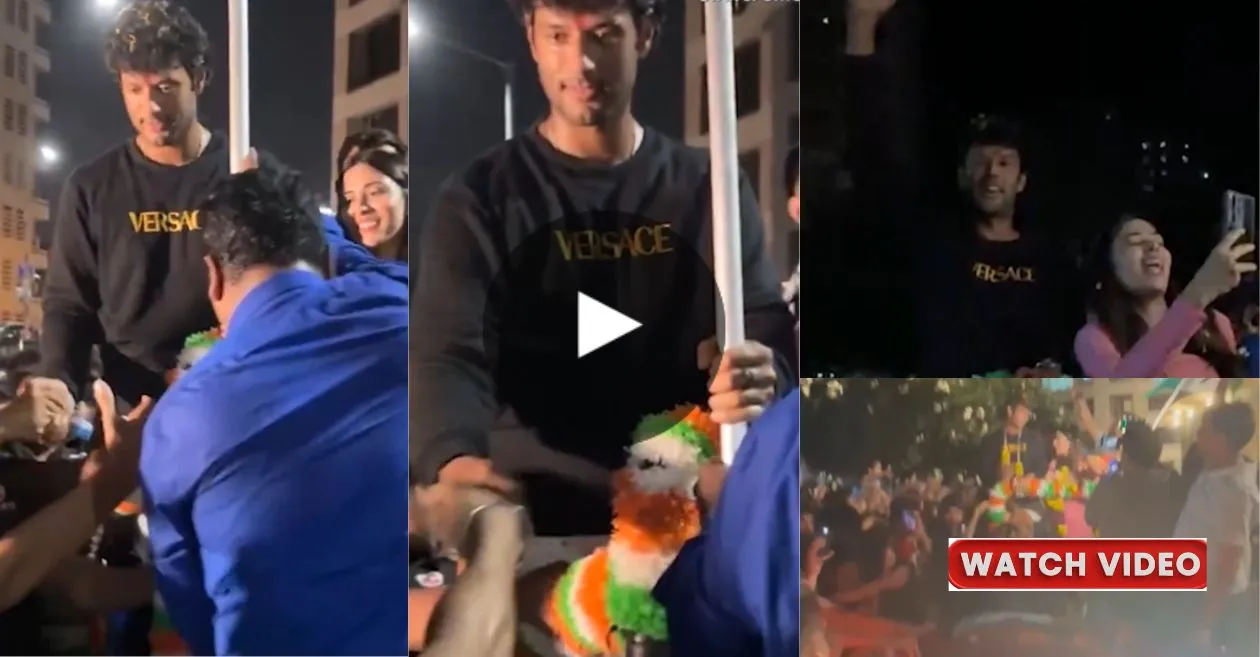A generation of great defenders have recognised Didier Drogba as their toughest opponent, a player who redefined the centre-forward role.
Drogba was the one-man forward line who transformed tactical trends, a tempo-setting target man who, quite literally, led from the front. Such was his influence on the Premier League, his arrival can be credited with being the catalyst for change.
Before the arrival of the Ivorian at Chelsea, most Premier League teams opted for a pair in attack. Whether an old-fashioned ‘little and large’, or a poacher and deeper-lying creator, almost all teams on English shores sought twin threat in the final third.
Then, came Drogba. This was a forward who battled the best alone, a hulking and high-intensity goalscorer who crashed through defences and brought the best from the teammates following his lead.
Drogba, at his peak, was as complete a centre-forward as there was anywhere in Europe, but his career did not always seem destined to reach those heights. A late bloomer in football terms, he did not sign his first professional contract until the age of 21. A childhood that lacked structure as Drogba moved back and forth between Abidjan, Ivory Coast, and France, eventually settled in his mid-teens in a Parisian suburb. After finishing school he moved to Le Mans, where he combined accountancy studies with an apprenticeship at the city’s second-tier side. At first, he struggled with the physical demands of a professional football set-up, but established himself in the senior side, as the birth of his first son brought a greater focus on football.
A dozen goals in 64 appearances for Le Mans was a modest return, but enough to pique the interest of Guingamp, who signed the striker in an £80,000 deal. His first half season was underwhelming amid the step up into Ligue 1, but a first full campaign that saw Drogba score 17 league goals shot the striker into the consciousness.
Drogba’s big break arrived, as in came Marseille. A £3.3m deal kickstarted a short but spectacular spell in Southern France. The Ivorian was untouchable in the colours of Les Olympiens and scored 32 goals in all competitions, 11 of which came in Europe. Drogba’s goals fired Marseille to the UEFA Cup final, eliminating both Liverpool and Newcastle on route, and himself to wider attention. Within two-and-a-half seasons, Drogba had gone from Ligue 2 unknown to one of the most capable centre-forwards in Europe. Predictable interest arrived.
Having watched on as Drogba tormented English opposition in continental competition, Chelsea spent £24m to bring the towering target-man to Stamford Bridge in 2004. It represented a record fee for the big-spending Blues, still in the infancy of the Roman Abramovich era.
Though he would depart eight seasons later idolised and adored, his early Premier League performances left much to be desired. Fitness issues contributed to a sluggish start, while Drogba’s theatrics brought criticism from fans and little sympathy from officials. The robust nature of the English game was eye-opening.
But, mixed in, were moments of real quality. A towering header to meet Celestine Babayaro’s cross opened his Chelsea account at Crystal Palace, before the first sign of link-up with Frank Lampard as Drogba converted a cut-back free-kick routine to earn three points at Middlesbrough. He scored 16 goals in all competitions during his maiden season in west London, including an extra-time winner in the League Cup final win over Liverpool, and was central to Chelsea’s first top-flight title in 50 years.
Chest. Swivel. 💥@didierdrogba with a beautiful #GoalOfTheDay pic.twitter.com/ucGSqfXyMs
— Premier League (@premierleague) May 20, 2017
Another title arrived in 2005/06, as Chelsea emerged as the division’s dominant force. Drogba’s ability to occupy opposition backlines singlehandedly allowed Jose Mourinho to use a three-man midfield, a tactic which brought balance and security to his side. Chelsea’s hierarchy had questioned Mourinho’s initial intent to sign Drogba ahead of more established names, but the Portuguese was insistent on the Ivorian. He was the facilitator of the manager’s vision.
“This was a person I knew I could count on whenever and wherever I needed,” Mourinho recalled.
“When the team was under pressure he would help defend; when he felt pain he would stretch himself to the limit and then, of course, came what he did best: scoring goals.”
Drogba won the Premier League Golden Boot in his third season, becoming the first African to lead the league for goals. He ended the campaign with 33 in all competitions, including decisive efforts in both domestic cup finals.
Drogba coming up clutch, as per 😱@didierdrogba | #EVECHE pic.twitter.com/H8NCJEydvf
— Premier League (@premierleague) August 6, 2022
Drogba’s goal record was impressive, if perhaps not elite, during his time at Chelsea, but the significance of his strikes eternally etched him into club history at Stamford Bridge. He scored big goals at big moments, with no fewer than 10 goals scored in 10 cup finals across his Chelsea career.
For most, the abiding memory of Drogba’s career came in Munich, 2012. Chelsea’s search for the Champions League had been a frustrating quest, with Drogba enduring his own individual disappointments alongside the collective. After a pair of semi-final setbacks against Liverpool, he fired Chelsea past the same opponents and into their first final in 2007/08, only to be sent off as Chelsea crashed to defeat to Manchester United in Moscow.
A year later, a controversial exit to Barcelona sparked scenes of incandescent anger from the Chelsea players, with Drogba’s expletive-led disgust with the officials directed down the television cameras.
And so, to 2012.
Chelsea reached the Champions League final, to salvage a season that had threatened to combust. Caretaker boss Roberto Di Matteo had inherited a dressing room in despair, after André Villas-Boas’ short-lived reign.
For Drogba, now 34 and with his Chelsea contract expiring in the summer, this was a last chance at redemption. The Blues were big underdogs against a Bayern Munich team hosting a Champions League final in their own Allianz Arena. On a drama-filled night in Bavaria, Thomas Muller’s late goal put Bayern ahead and on the brink of the trophy. But this was not to be Bayern’s night.
With two minutes remaining, Drogba freed himself from Jerome Boateng’s attention to power home Juan Mata’s corner kick. On the big occasion, once more, he had delivered. A clumsy challenge saw Drogba go from hero to villain in extra-time, but Petr Cech’s penalty save spared him and kept the final even. In the eventual shootout, Drogba scored the decisive kick to crown Chelsea champions of Europe for the first time.
🔵 #OTD in 2012, Chelsea became champions of Europe 🏆
🤔 Who was the hero in Munich?#UCL | @ChelseaFC pic.twitter.com/TMdNAUxGRl
— UEFA Champions League (@ChampionsLeague) May 19, 2020
It was a fitting farewell, as Drogba rode off into the sunset clutching the winners medal that had eluded him for so long. Spells at Shanghai Shenhua and Galatasaray, a brief return to Chelsea that brought a fourth Premier League title, Montreal Impact and Phoenix Rising brought a conclusion to his career.
Though titles deserted him on the international stage, he was part of the Ivorian team that reached a first World Cup in 2006 and helped develop Les Éléphants into one of Africa’s best teams, scoring a record 65 goals in 105 caps. More importantly, he shone a spotlight on the civil war that had damaged his home nation and was a public protagonist in calls for peace and unity. For that, his legacy is assured.
His finest seasons saw Drogba stand as arguably the best out-and-out centre-forward in the game. In 2009/10 he fired Chelsea to a domestic double with 37 goals in 44 games, though goals were just a part of the package.
#OnThisDay in 2010…@didierdrogba scored a hat-trick to seal the #PL 🏆 for Chelsea with an emphatic 8-0 victory pic.twitter.com/0YUFOWkjj7
— Premier League (@premierleague) May 9, 2019
This was a forward who ransacked defences and unnerved even the most self-assured of centre-back. He was all hustle and Herculean in build, a Premier League powerhouse with touch and technique to augment his athleticism.
He popularised the lone forward role and then perfected it. Drogba, in the blue of Chelsea, was the blueprint for a new era of number nines.
When tales are told of Drogba in decades to come, they will centre around the striker who scored goals of consequence and changed the course of cup finals at his will. Rarely has a player come so alive on the biggest stage, shedding the fear that grips games of such magnitude.
Read – Noughties Nines: Mr. Thunderbastard, Jimmy Floyd Hasselbaink
See also – Noughties Nines: Andriy Shevchenko – Rossoneri royalty
Cult Kits: Hundreds of shirts added to store each week







